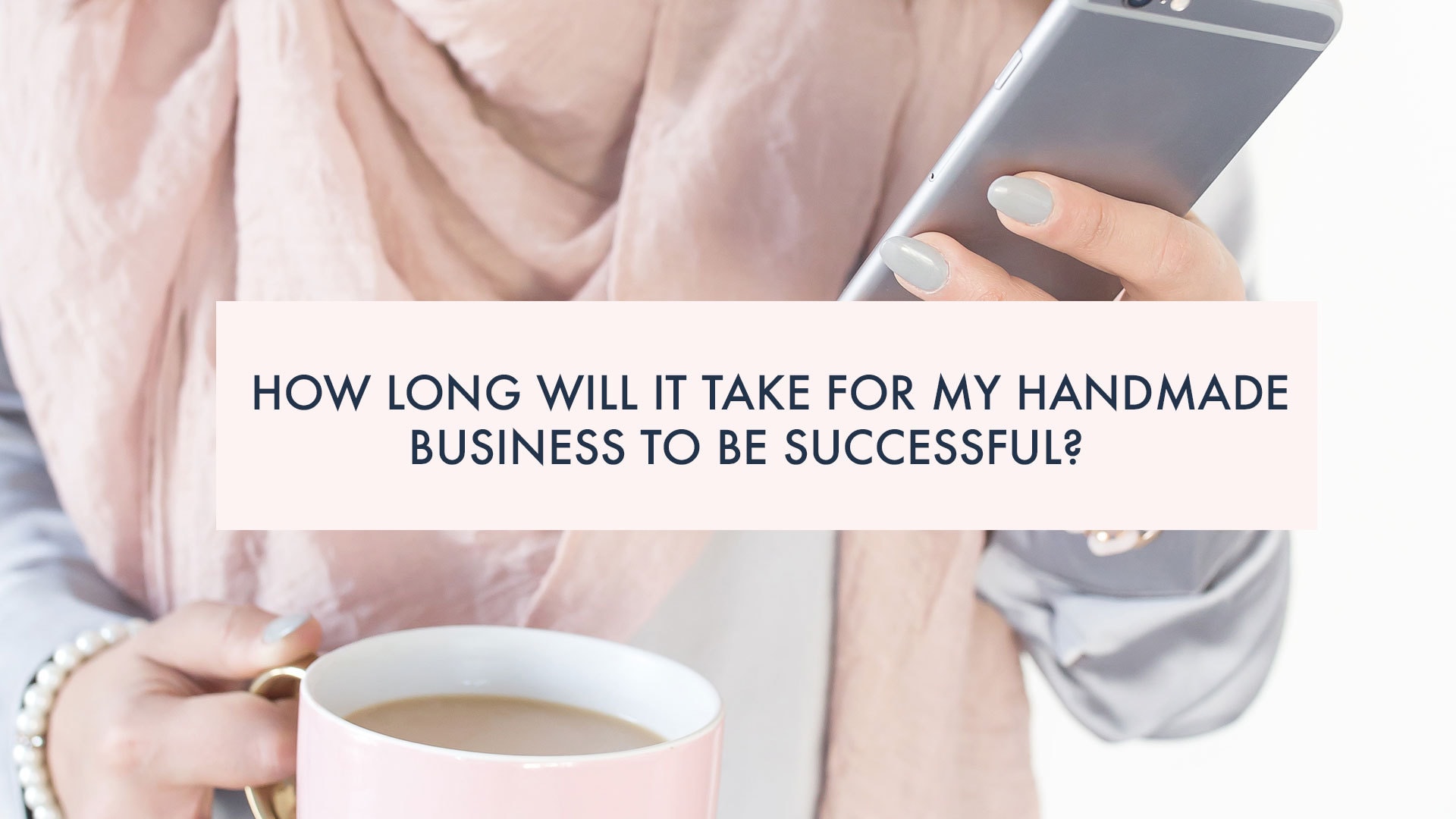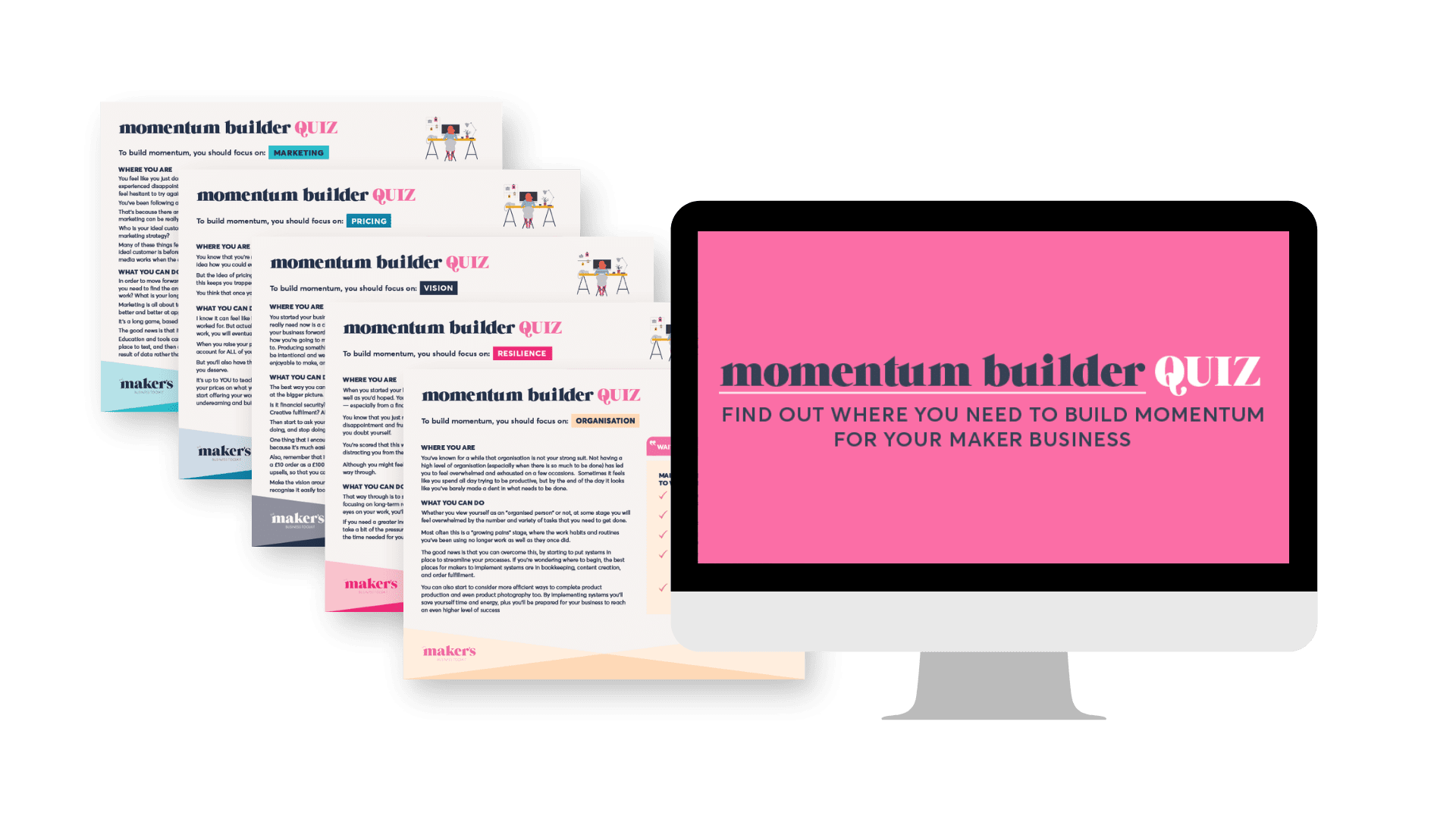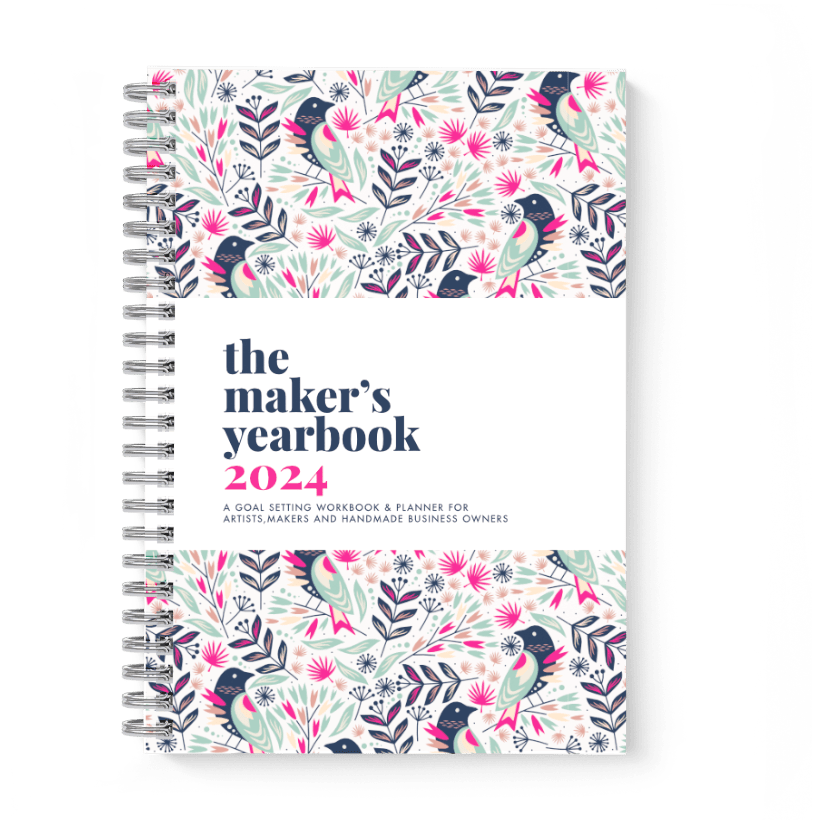And actually that’s one of the more terrifying things about starting your handmade or art business.
Because what does that really mean?
Six weeks, Six months? Six years?
How long until your marketing plan works?
How long will it take until you can draw an income from your business?
How long will it take until your sales are predictable?
How long will it take until you’re selling enough each month?
These are perfectly reasonable questions, but they are the wrong questions.
Because the fact is that it completely depends on the effectiveness of your plan for each one of these outcomes.
Don’t have a plan for getting to the point where you can draw an income from your business? Then it’s going to take a LONG time.
Got a comprehensive and well thought out marketing plan? Then it’s going to take a lot less time to find and build a customer base.
The better questions are these:
What is my strategy for achieving this result?
How long will I test my strategy for?
How will I measure whether my strategy has been successful or not?
And how will I adapt my strategy based on the results I see?

All of these questions are important, but number three is absolutely crucial.
Imagine that, instead of “how long will it take for my handmade business to be successful?” your question is the equally vague “how long will it take for me to get fit?”
How could you possibly answer that question until you knew what “get fit” means?
Does it mean that you no longer get breathless running up the stairs? Or does it mean you can run 10k? Or does it mean you can do up the top button on that old pair of jeans?
If you’ve ever set yourself the goal to “get fit” I know you know that it’s hard. It sucks at time,s and it’s really hard to stay motivated.
And the reason it’s hard to stay motivated is that not only have you got no idea how long it’s going to be hard, you’ve also got no idea what it’s going to look like when you get fit.
So you can’t motivate yourself by accomplishing steps along the way. And you can’t see anything other than the fact that it sucks now.
On the other hand, imagine if you knew exactly what sales figure you needed to get to before you can draw an income of x from your business?
You might not know how to get there (yet) but you’d definitely know if you’d succeeded or not.
And, as you worked on your business, testing out new things, you’d know whether you were getting closer to that magic number or not
If you paid attention to how fast your sales were growing, you might even be able to have a guess at how long it might take you to get from where you are right now to where you want to be.
You could check off the steps along the way and that feeling of accomplishment might just get you through the moments of doubt and low motivation.
The better the plan, the shorter the time until you know whether it works (or doesn’t).
Running a business is really just a series of experiments, to see what works and what doesn’t and then adapting accordingly. Because some things won’t work…and that’s just part of it.
If we adapt to the results of our experiments over and over again, we can shave weeks, months, even years off the time it takes for us to achieve any outcome for our handmade businesses.
And it’s not really any different from a science experiment.
As we can remember from GCSE science, the steps of an experiment are as follows:
1. Pick a topic and define your variables (i.e what you are testing)
2. Make a hypothesis
3. Conduct your experiment methodically
4. Collect data
5. Analyse data and come to a conclusion
So, let’s say that our first experiment for our handmade business is to find out the answers to the two key marketing questions: Who will buy this product? and Why will they buy it?
These two questions are the cornerstone of your marketing and, until you have at least a sense of the answers, marketing will always feel really difficult.
For us, the variable we are testing is our targeted audience. Our hypothesis is that this audience will be a good fit for our products.
So, if you make beach inspired jewellery perhaps your hypothesis, based on just your personal opinions, would be that your jewellery will appeal to a woman in her 20s who loves Roxy and Hollister.
If we set up an experiment to test that hypothesis, when you analyse the data you might find that actually your work appeals more to a woman in the 30s who shops at Fat Face and The White Stuff.
If we take this information and we use it to alter our marketing strategy we will get to where we want to be so much faster than someone who keeps trying (and failing) to attract those younger customers.
Maybe we’ll find out that people like the product but want it in more luxurious materials, or less expensive materials, or more durable materials. Maybe we’ll find out that there isn’t enough of an audience for this product and we can try something else, before we run out of money.
If your business isn’t founded on continuous testing you are spending your time and your money on something with only your gut feelings to go on.
That’s a very high risk strategy.
So, I can’t tell you how long it will take for your handmade or art business to be successful. But I can tell you that if you have no definition of success and no strategy, you may not get there at all.
Plans aren’t designed to be the final word on how things will go. They are designed to help you move towards your goals with purpose and to know when you’ve achieved them.









